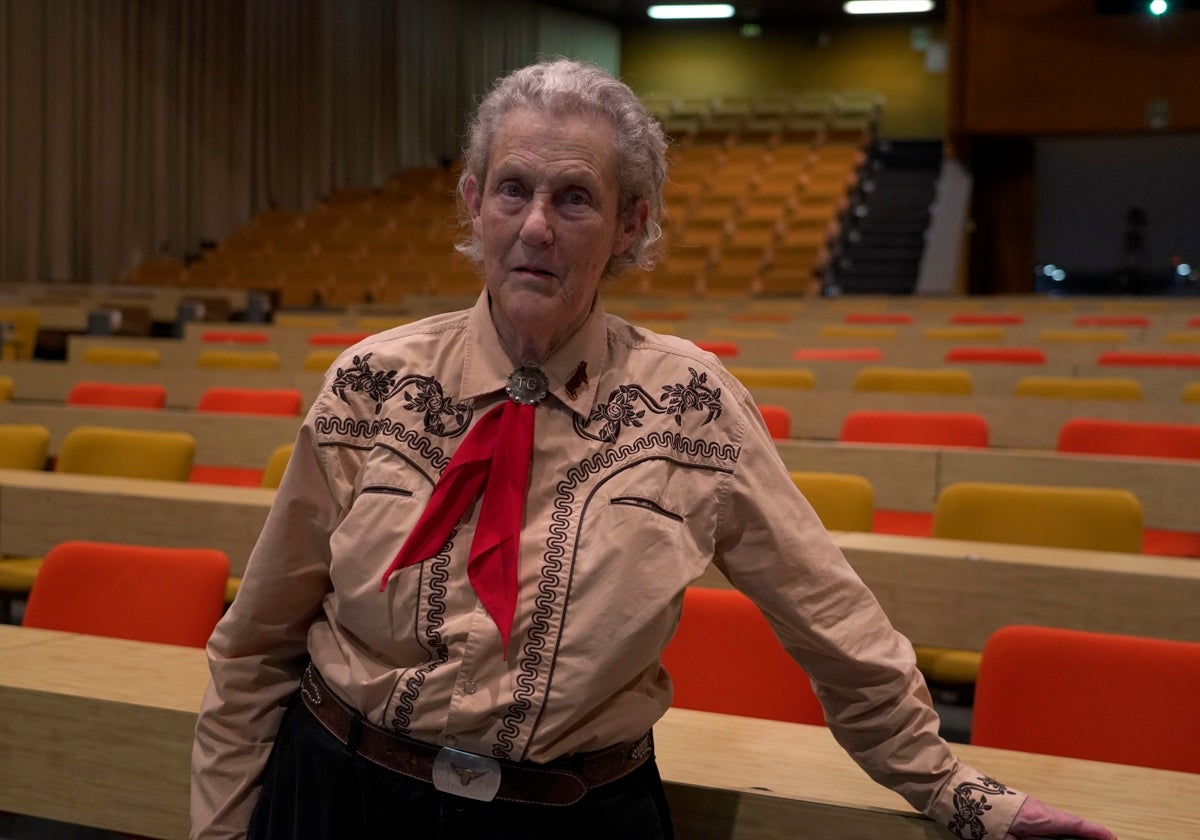Temple Grandin: 'The autism spectrum ranges from Einstein to someone who can't dress themselves'
The famous expert on the reality of people living with autism has been in Torremolinos to promote a documentary inspired by her life and thoughts
Born in Boston in 1947, Temple Grandin is the main character of her life - and now a film too. Her way of being in the world and the way her mind works inspired Claire Danes to bring her to life in the documentary, An Open Door (2023), directed by the award-winning filmmaker John Barnhardt. Another of the most monumental moments of her life involves legendary actor John Wayne, who commissioned her to design his farm and never made a big deal of the fact that she is autistic.
Grandin is one of the most authorised voices on the planet to talk about autism. She does it from the inside, with first-hand knowledge of living with the disorder. She acts as a guide for those who have someone on the autistic spectrum in their lives. Four hundred people attended the conference she offered in Torremolinos, a first visit to Spain, and to Europe, with Malaga as a base of operations, sponsored and led by the Fundación Autismo Sur with the collaboration of the Chair of Autistic Neurodivergence of the University of Malaga.
Her talk was an opportunity to hear from a unique person: a strong advocate for rights for autistic people, inclusive neurodiversity and animal welfare.
-Your visit to Spain is seen as an event, do you think it is due to the lack of recognised voices that provide clarity on autism?
-I think it's very good that it was organised so that I could be here today. Yes, of course. We need voices and, unfortunately, language is a big barrier. I'm very happy to see that my books are translated, because you go to another country and none of this information is translated. But in Spain my three most important books on autism are translated, which can be a great help.
-The term Autism Spectrum Disorder is used a lot, but what does it actually mean? How can you explain it in a few words?
-Autism ranges from Albert Einstein, who had no speech delay, to someone who cannot dress themselves. It has a very broad spectrum, which can be problematic. People tend to underestimate what autistic people can do.
-It has been said that, by being able to clearly transmit your way of organising thought, you illustrate how parents should deal with autistic children - have you perceived a global change?
-Yes, I am seeing a change. For example, airports have a quiet place to go and some shopping centres have adapted cinemas for people with sensory disabilities, with less noisy environments. I've seen that kind of thing in many places.
-You have inspired, among many other works, a film and now you are the star of a documentary, what is your next challenge?
-I'm already doing it, I'm almost 80 years old and I'm still giving talks. What I want is to be able to continue this work around the world in the future.
-What advice would you give to a family when they discover that their child has traits of Autism Spectrum Disorder?
-If a three-year-old doesn't talk, the worst thing you can do is to leave them with a mobile phone. You have to take them out to play, let them learn to take turns. You have to concentrate on what the child can do, not on what they can't do. Many can do much more than we think - we need the skills of autistic people. Many have extraordinary technical and visual abilities.
-In short, if you have a child who does not speak and deafness is ruled out, start working with them immediately and implement games to enhance their skills, such as dressing themselves or using a spoon. Teach them jobs such as mechanics - these can be exciting professions that are not going to disappear because of AI. There will always be a need for someone to fix an engine.
-I see too many smart kids locked up playing video games all day. They need real tasks, schedules, time outside the family environment, collaborating with everyone, running errands in the neighbourhood.


Comentar es una ventaja exclusiva para registrados
¿Ya eres registrado?
Inicia sesiónNecesitas ser suscriptor para poder responder.
Necesitas ser suscriptor para poder votar.